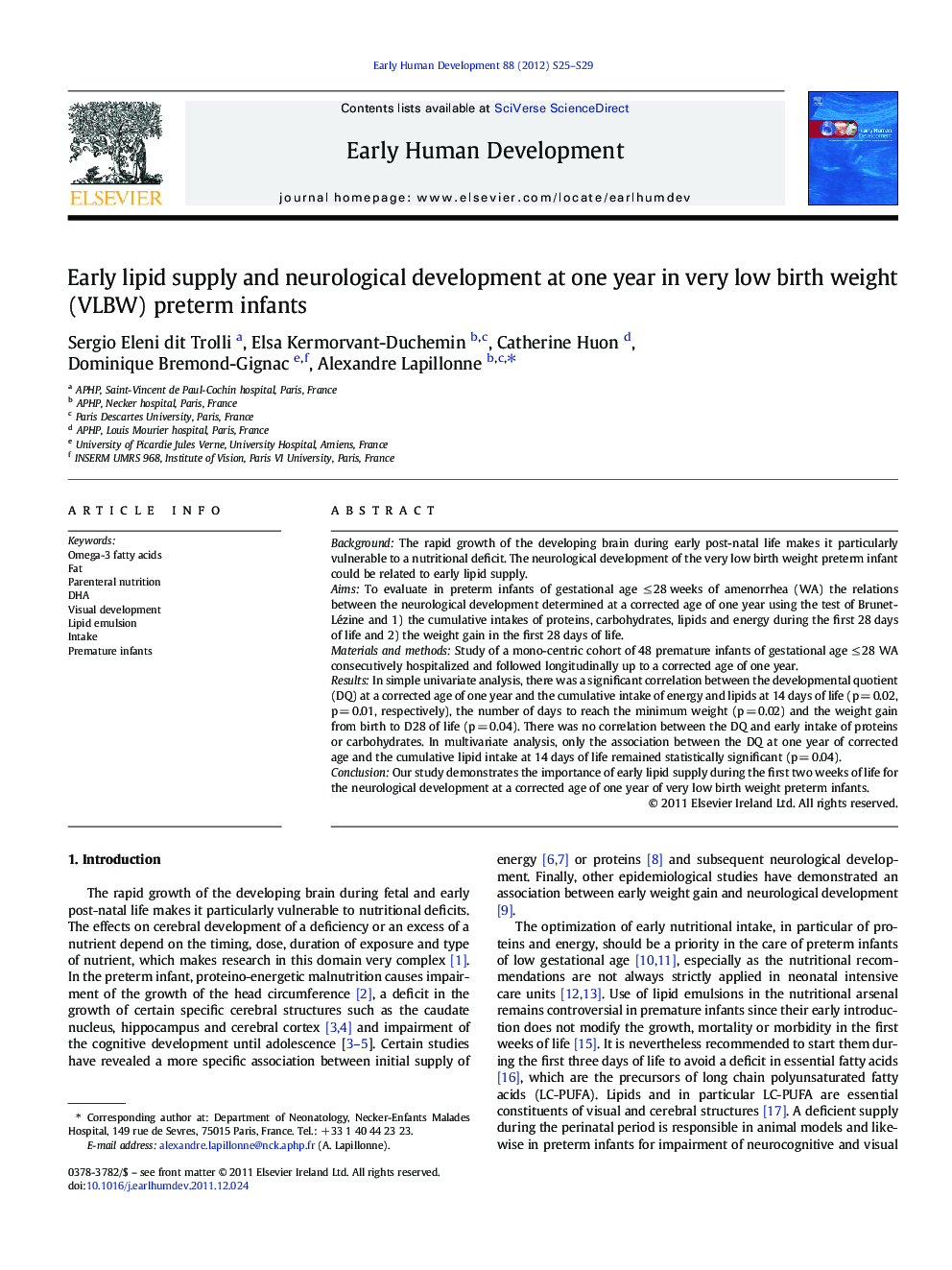| Article ID | Journal | Published Year | Pages | File Type |
|---|---|---|---|---|
| 3917352 | Early Human Development | 2012 | 5 Pages |
BackgroundThe rapid growth of the developing brain during early post-natal life makes it particularly vulnerable to a nutritional deficit. The neurological development of the very low birth weight preterm infant could be related to early lipid supply.AimsTo evaluate in preterm infants of gestational age ≤ 28 weeks of amenorrhea (WA) the relations between the neurological development determined at a corrected age of one year using the test of Brunet-Lézine and 1) the cumulative intakes of proteins, carbohydrates, lipids and energy during the first 28 days of life and 2) the weight gain in the first 28 days of life.Materials and methodsStudy of a mono-centric cohort of 48 premature infants of gestational age ≤ 28 WA consecutively hospitalized and followed longitudinally up to a corrected age of one year.ResultsIn simple univariate analysis, there was a significant correlation between the developmental quotient (DQ) at a corrected age of one year and the cumulative intake of energy and lipids at 14 days of life (p = 0.02, p = 0.01, respectively), the number of days to reach the minimum weight (p = 0.02) and the weight gain from birth to D28 of life (p = 0.04). There was no correlation between the DQ and early intake of proteins or carbohydrates. In multivariate analysis, only the association between the DQ at one year of corrected age and the cumulative lipid intake at 14 days of life remained statistically significant (p = 0.04).ConclusionOur study demonstrates the importance of early lipid supply during the first two weeks of life for the neurological development at a corrected age of one year of very low birth weight preterm infants.
